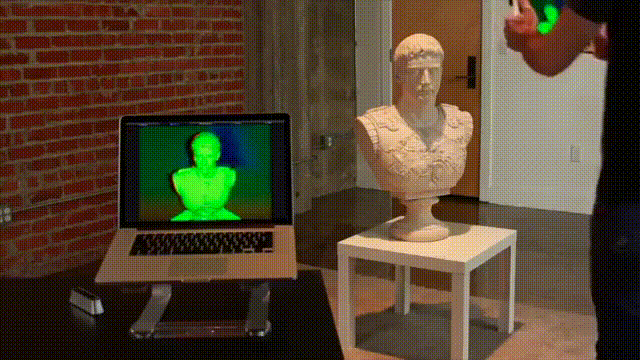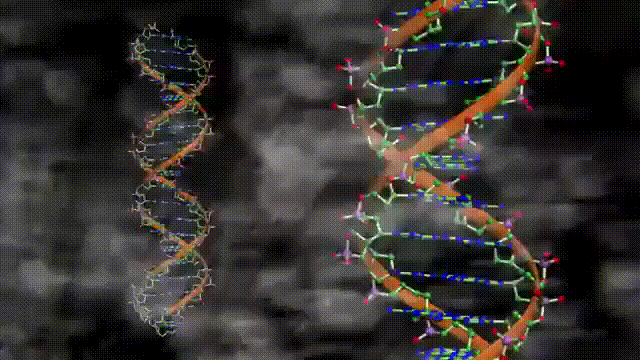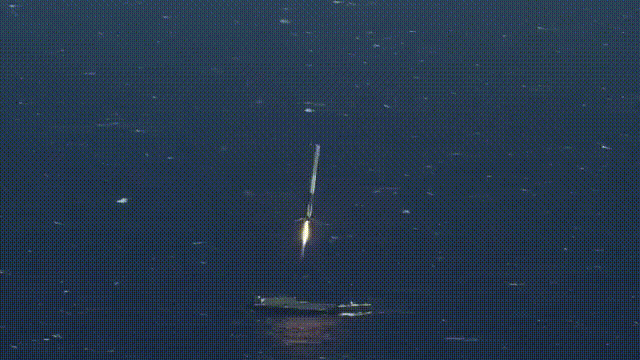In this week's Abundance Insider: Organ-delivering drones, DNA digital data storage, and yet another SpaceX milestone.
Cheers,
Peter, Marissa, Cody, Maxx, Kelley and Greg
P.S. Send any tips to data@diamandis.com, and send your friends and family to this link to subscribe to Abundance Insider.
EHang to Deploy Passenger Drones for Emergency Organ Deliveries

What it is: This week, UAV manufacturer EHang announced plans to use its human-sized drones to deliver organs to transplant patients, in collaboration with Lung Biotechnology PBC in Maryland. To pull off this feat, Lung Biotechnology will customize EHang's 184 vehicle, which can travel over 10 miles at speeds of up to 65 miles per hour.
Why it's important: One more enabling step for personal transportation vehicles -- and a powerful example of how drones and unmanned aerial vehicles will dramatically accelerate first responders' ability to provide care in emergencies.
Spotted by Greg O'Brien
3D Scanning, Augmented Reality and More for Mobile Devices

What it is: Structure is a 3D capture device that plugs into an iPad to create a 3D scan of any physical space or object. While we've seen similar products (e.g. Google's Project Tango), Structure uses commonly available hardware and a lower cost (around $500 for the full developer kit, and the structure sensor is $379).
Why it's important: We're witnessing a race to the "user interface moment" -- the point in time where an interface emerges that makes it fast and easy enough for amateurs to generate (and earn money with) mixed reality environments and dense 3D models.
Spotted by Martin Dell
Microsoft's Testing DNA Storage: 1,000,000,000 TB in 1 Gram

What it is: Is DNA the next frontier of digital data storage? Microsoft thinks so -- it's just purchased 10 million strands of synthetic DNA from Twist Bioscience for experimentation. Futurism reports that Microsoft's initial tests revealed that they can encode and recover 100 percent of binary data from synthetic DNA. Twist Bioscience uses a semiconductor-based synthetic DNA manufacturing process, which it says offers "unmatched scale and product quality."
Why it's important: "Today, the vast majority of digital data is stored on media that has a finite shelf life and periodically needs to be re-encoded," explained Twist Bioscience CEO Emily M. Leproust, Ph.D. in a press release. "DNA is a promising storage media, as it has a known shelf life of several thousand years, offers a permanent storage format and can be read for continuously decreasing costs."
Spotted by Aryadeep S. Acharya
Scientists Make Seawater Drinkable, Produce 6.3 Million Liters a Day
What it is: Water may be scarce now, but it won't be for long. Scientists at India's Bhabha Atomic Research Centre (BARC) are using waste steam from a nuclear reactor to desalinate seawater -- and they're already producing 6.3 million liters of purified water per day. BARC's desalination process also includes a purification step that can transform even arsenic- and uranium-tainted water into safe drinking water.
Why it's important: When we can transform any water source -- no matter how polluted or contaminated -- into potable water, we enable breakthroughs in health, longevity and global transformation. This desalination method, which is already rolled out throughout India, is one step closer to that future.
Spotted by Marissa Brassfield
Australian Researchers Develop Breakthrough in Solar Technology
What it is: Researchers at the University of South Wales in Australia have made a major breakthrough: the world's highest efficiency rating for a full-sized, thin-film solar cell. Other thin-film cells are made from toxic materials like cadmium and selenium, or rare materials like indium and tellurium, but the UNSW team used a CZTS cell made of nontoxic, Earth-abundant materials: copper, zinc, tin and sulfur.
Why it's important: One step closer to thin-film solar cells that are cheap, efficient and safe enough for ubiquitous use in residential, commercial and industrial applications.
Spotted by Peter Diamandis
Scientists Accidentally Create a Battery That Can Outlast Your Device
What it is: University of California at Irvine researchers recently developed a battery that can take 200,000 charge cycles -- 400 times the charges that a traditional lithium battery can take. What's even more surprising about this development is that it was entirely by accident. The lab had been working on using gold nanowires instead of lithium to create a solid-state battery, and Ph.D candidate Mya Le Thai had an idea to cost the nanowire with manganese oxide and then suspend it in an electrolyte gel for protection.
Why it's important: Sometimes the biggest breakthroughs come from non-experts. This single discovery could lead to rechargeable batteries that last forever -- a tremendous leap forward for anything that needs power.
Spotted by Aryadeep S. Acharya
Think to Speak' App Technology for People With Impaired Verbal Communication

What it is: Smartstones is a platform and accompanying app that turns any sensory IoT device (think EEG headsets) into a communication interface using "thought messages" -- text messages or app-based push messages created solely by thinking them. Using an EEG headset and Smartstones' app (called :prose), anyone -- including those with autism, ALS, deafness, brain injuries or spinal cord injuries -- is able to communicate simply and effectively with the world around them.
Why it's important: Smartstones is a promising user interface for thought-to-text communication. "Communication is the most important part of the human experience and we want to ensure every person has the ability to express their most basic needs," explains Smartstones CEO Andreas Forsland. "With 2.3 million nonverbal children in the USA with autism alone, and over 70 million on the autism spectrum worldwide, everyone has a unique need when it comes to a communication interface."
Spotted by Greg O'Brien
Latest Dubai Bid Represents a Solar Power Price Drop of 50% in 16 Months
What it is: Electrek reports some fascinating news out of the UAE: Dubai recently received bids for $.0299/kWh for 800MW of solar power, which represents the lowest recorded price for solar power thus far. This article also highlights recent solar energy pricing trends around the world, with extensive forecasting and financial projections.
Why it's important: Overwhelming evidence that solar energy hasn't stopped its exponential price-performance growth -- and some of the most substantial developments are happening outside of North America and Europe.
Spotted by Gabriel Delgado Ayau
SpaceX Lands Its Fastest-Flying Rocket Yet

What it is: This week marks another new space milestone, thanks to Elon Musk and his team at SpaceX. Quartz reports: "This is the first time that the company has landed a rocket that flew to 'geosynchronous transfer orbit,' or GTO. That means it set its satellite cargo on a path to reach an altitude where the speed of its orbit will match the speed of Earth's rotation, allowing it to 'hang' over one place, about 36,000 kilometers above us."
Why it's important: While this SpaceX achievement has tremendous potential for the space industry and interplanetary travel, there's an even more exciting implication for Abundance Insider readers. Quartz's reporting continues: "The most lucrative satellites are those that hang over one spot on earth in their geosynchronous orbits. Introducing reusability into that launch market is key to lowering the price and growing SpaceX's market share. And, at a time when numerous companies are developing cheap solutions to launch satellites in to low-earth orbit, ensuring dominance at the highest of altitudes will insulate SpaceX from those competitors."
Spotted by Marissa Brassfield
These Images Illustrate the Future of Autonomous Vehicles

What it is: Honda, Mori Inc and Map have created a concept called "Honda. Great Journey" that shows seven futuristic self-driving transportation concepts. These designs show off how future autonomous cars might navigate tricky terrain like rainforests, cracked ice, deserts and mountains.
Why it's important: An innovative and visually appealing glimpse into the future of how highly specialized autonomous cars will move us forward. (By the way, this advertorial is also a great example of how big brands can help usher their customers into the future -- and, as a result, earn and/or maintain their trust and loyalty.)
Spotted by Marissa Brassfield
What is Abundance Insider?
This email is a briefing of the week's most compelling, abundance-enabling tech developments, curated by Marissa Brassfield in preparation for Abundance 360. Read more about A360 below.
Want more conversations like this?
At Abundance 360, Peter's 250-person executive mastermind, we teach the metatrends, implications and unfair advantages for entrepreneurs enabled by breakthroughs like those featured above. The program is highly selective and we're almost full, but we're still looking for a few final CEOs and entrepreneurs who want to change the world. You can apply here.
Know someone who would benefit from getting Abundance Insider? Send them to this link to sign up.
PHD Ventures , 800 Corporate Pointe, Suite 350, Culver City, CA 90230
No comments:
Post a Comment